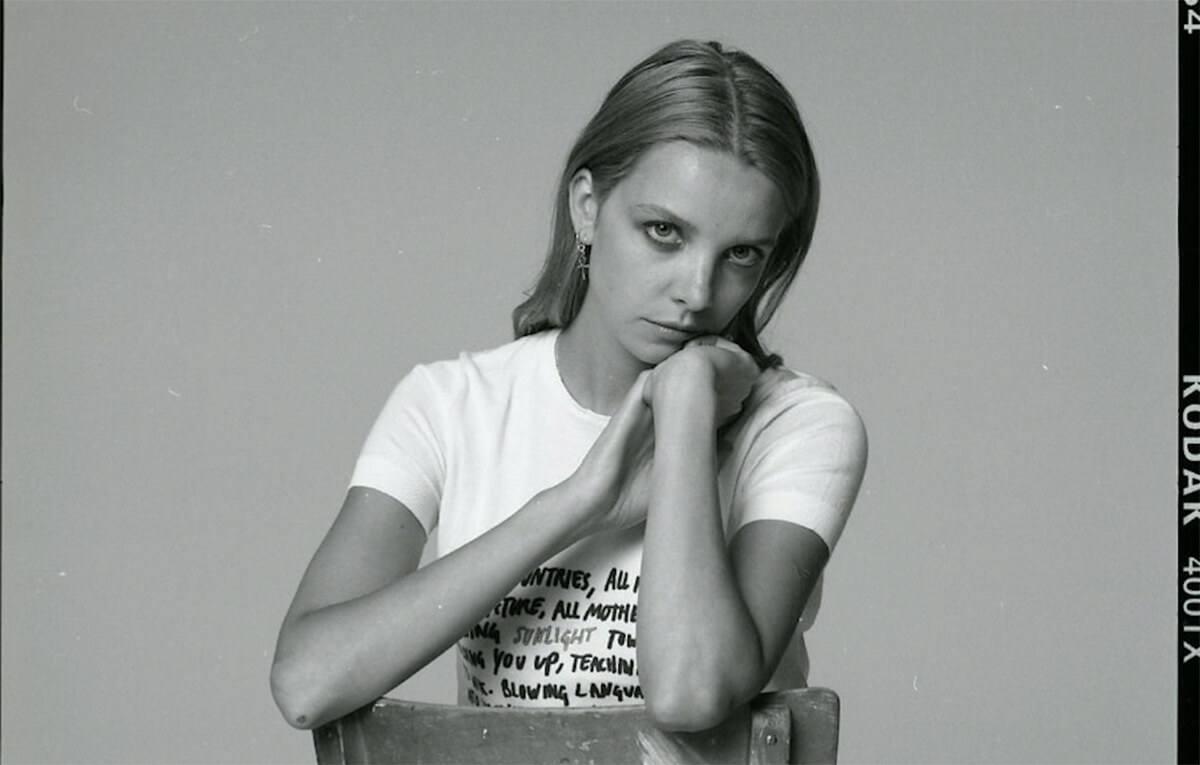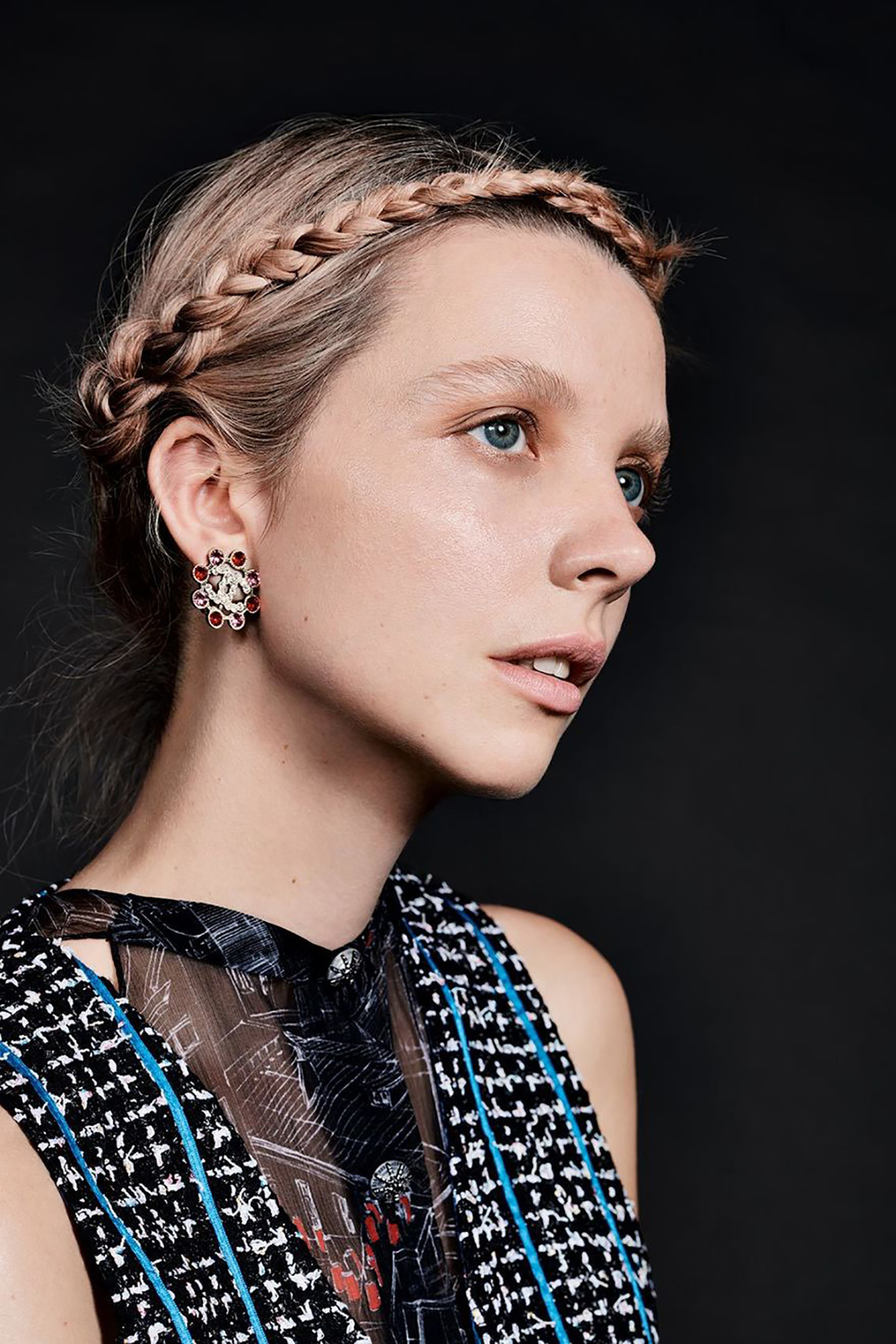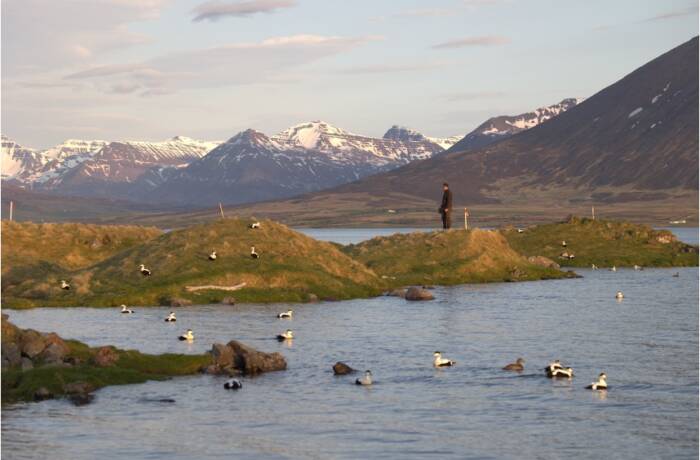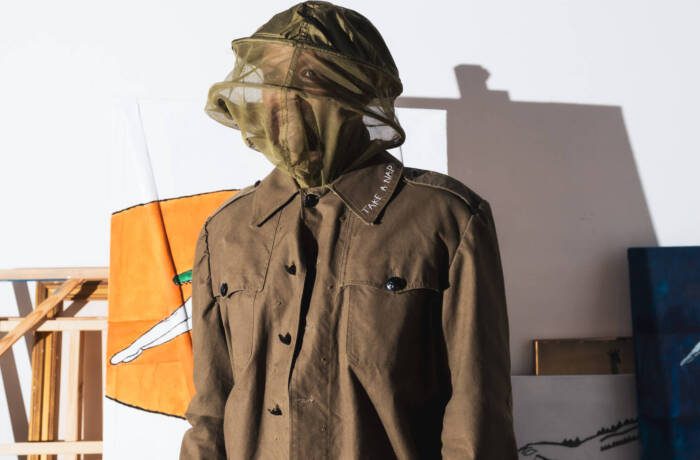London-based Greta Bellamacina is one of those people who, once discovered, you can’t stop thinking about. Like a sleeper hit which innocuously makes its way up into the charts as one by one fans fall in love, Greta’s infectious presence online and throughout the arts scene utterly grabs hold. For October’s Vogue she is included in a feature about today’s progressive new poets, along with Cecilia Knapp, Selina Nwulu and James Massiah – but this is hardly surprising considering the unique blend of talents in her arsenal. LUX’s contributing poet, Rhiannon Williams speaks to the woman behind the words about the plight of of the public library, how her varifocal talents intersect, and her inspirations.
Ethereally beautiful, the first thing that strikes you is that Greta looks every part the romanticised ideal of ‘poet’. But it is her passion for what she does which, more than anything, startles – and makes you want to follow in her lead as a force for good in a confusing world. Greta’s work as a poet, film-maker, activist and model crosses and fuses borders, something that is seen more and more these days as people resist the restrictive boundaries of having a single ‘profession’ – and what could be more fitting for a modern-day poet? She published her debut poetry collection ‘Perishing Tame’ in 2015 through New River Press, a poetry press which she co-founded herself, and launched it into the world with readings at Shakespeare & Co, Paris and The Chateau Marmont, Los Angeles. She has also edited collections, including ‘Smear’ in 2017, an important anthology for young women poets everywhere, and has published collaboratively with poet-husband Robert Montgomery the collection ‘Points for Time in the Sky’.
Follow LUX on Instagram: the.official.lux.magazine
In the role of film-maker a particularly significant recent work was 2016’s documentary ‘The Safe House: A Decline of Ideas’, which smartly tackles the state of the British public libraries, spreading awareness of a plight that not enough people are conscious of. For a poet, the savage cuts to public funding that have brought the libraries of the UK to their knees over the last decade is a political outrage that hits very close to home. Greta’s activism with this documentary, which involved Stephen Fry and Irvine Welsh among others, demonstrated a fierce defiance in the face of a crisis of intellectual deterioration, and a prime example of how Greta uses her creative abilities as a force for good.
On top of all this, Greta has been involved in modelling campaigns for the likes of &otherstories and Stella McCartney. One can only pause in awe to wonder how she has time for so much, all the while maintaining an image that is undeniably slick. This is brought about by a stylishness that spans from the arresting design of her website (think arty snaps with poet John Cooper Clarke outside her film premiere), to her Instagram presence (handwritten pages of her thoughtful, searing poetry), to her fashion choices (somewhere in the realm of elfish art student lost on a Victorian couture runway).

Greta has appeared in modelling campaigns for the likes of &otherstories and Stella McCartney
Rhiannon Williams: How did you first fall into poetry?
Greta Bellamacina: It has always been there, I’ve always heard words in my head that I felt compelled to write down. I knew from early on that poetry has the power to break your heart and fill it up again within a sentence.
RW: Can you tell me a bit more about the intersection between your talents for film-making, writing and modelling? Do they complement or sometimes clash?
GB: I think I have always been drawn to exploring the truth and beauty in the everyday- and playing with everyday conventions. If you make art in any form I think you have the moral responsibly to make the world a better place and be socially progressive. Fashion can be a fun way to make people feel apart of a new consciousness.
Read next: Kering’s Marie-Calire Daveu on championing long-term sustainability
RW: In your writing as well as film-making you are an activist, tackling the threat to the public libraries in Britain with ‘The Safe House: A Decline of Ideas’ and promoting the empowerment of girls and female identity with ‘Smear’. Was this always a conscious decision to use an artistic avenue to further a cause, or do you think your beliefs shape your work almost without you realising?
GB: The working class fought for a hundred years to have public libraries. My local one had been turned into a block of luxury flats. But it wasn’t until I kept meeting young secondary school students fighting for seats in the library all round Britain that I understood how much it would change the next generation, change the communities if these temples of learning were to disappear. I think it’s good to let the audience have room to imagine their own futures and memories in these places, in order to shape wider beliefs and bring change. I think thats why when I edited ‘Smear’ I didn’t have any age limit or direct theme of Feminism, I just wanted women to have a place to be uncensored and shameless, a place for women to speak.
RW: What is your creative process – how do you sort through ideas and plans for projects?
GB: Rage, heartbreak and love- usually in that order.
Rhiannon Williams: Who are some poets you could not live without reading?
Greta Bellamacina: I always seem to go back to Ted Hughes, his words have some many eternal, harrowing shades to them. It has a closeness to it that you can’t help feel connected. There are so many more, Robert Montgomery of course, Alice Oswald, Warsan Shire, Heathcote Williams, Anne Sexton….
RW: What are you reading, listening to or excited about right now?
GB: I am listening a lot to Mazzy Star, Patti Smith, Sharon Van Etten and Sleaford Mods right now and really enjoying Warsen Shires poetry collection “Teaching My Mother How to Give Birth”. I’m excited about the morning sun, learning from strangers and finding new worlds in the sky.









